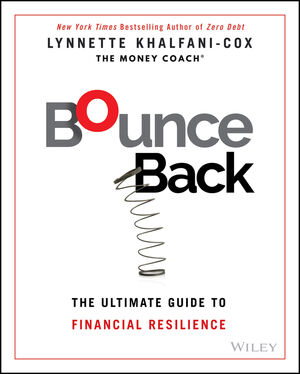
The Rise of Campus Wellness Closets: Supporting Students Beyond the Classroom
In the evolving landscape of higher education, universities are embracing holistic approaches to student wellness that extend far beyond academic support. One emerging initiative that’s gaining momentum nationwide is the concept of Campus Wellness Closets—dedicated spaces that provide students with essential personal care items during times of financial hardship or unexpected life challenges.
Pioneered by institutions like Tougaloo College and embodied in their Owens Health and Wellness Center, these Wellness Closets symbolize more than just a supply resource. They represent compassionate, discreet support systems that acknowledge wellness as a daily, multifaceted commitment involving physical, mental, and emotional health.
Wellness Closets: Addressing Fundamental Needs with Dignity and Care
At Tougaloo College, the Owens Health and Wellness Center defines wellness as the integration of physical, emotional, mental, and social well-being, emphasizing it as an ongoing commitment rather than a temporary state. Their Personal Wellness Closet offers emergency personal hygiene products, such as shampoo, deodorant, feminine care items, toothpaste, and more, for students facing financial or situational challenges.
“The Wellness Closet is not a regular supply outlet, but a short-term support system to help students maintain personal hygiene and dignity during difficult times,” explains a representative from the Owens Center. “We encourage responsible use and approach this service with compassion, respect, and discretion.” (Tougaloo College Owens Center)
Such basic needs, often overlooked, are crucial to a student’s self-esteem, social confidence, and academic focus. When students have access to these essentials, they report feeling more empowered to concentrate on their studies and engage actively with campus life.
A Holistic Movement in Higher Education
Wellness Closets are part of a broader transformational wave within higher education institutions that prioritize holistic student wellness. This movement integrates mental health counseling, nutrition education, physical activity programs, and now, practical resources like Wellness Closets to fill critical gaps in student support.
Dr. Melissa Harding, a leading expert in student health and wellness, notes:
“Student wellness encompasses more than mental health or physical fitness alone. It requires addressing fundamental barriers such as access to personal care products, which directly impact a student’s ability to thrive both personally and academically.”
By addressing these foundational needs, Wellness Closets help reduce health disparities on campuses and foster inclusive communities where every student feels seen, supported, and respected.
Why Wellness Closets Matter: The Impact on Campus Culture
The success of Wellness Closets lies not only in what they provide but in the cultural shifts they inspire:
- Immediate Access to Hygiene Essentials: Students no longer need to skip crucial self-care due to financial strain.
- Reducing Stigma: Offering discreet, judgment-free access encourages students to seek help without embarrassment.
- Boosting Academic Performance: Meeting personal care needs enhances focus, energy, and overall well-being.
- Promoting Community Care: Wellness Closets symbolize a campus culture rooted in empathy, solidarity, and proactive support.
A survey conducted by the American College Health Association found that over 20% of college students experienced basic needs insecurity in the past year, including difficulties in affording hygiene products. Initiatives like Wellness Closets directly confront these challenges, making a tangible difference.
How to Support or Launch a Campus Wellness Closet
For campuses interested in replicating this impactful model, several key strategies can ensure sustainability and effectiveness:
- Build Partnerships: Collaborate with local nonprofits, businesses, and donors to secure a steady stream of personal care supplies.
- Raise Awareness: Engage student organizations, health centers, and residence life teams to promote the service widely and normalize its use.
- Maintain Confidentiality: Design access points and procedures that respect student privacy to encourage utilization without fear of judgment.
- Integrate Holistic Programming: Link the Wellness Closet with mental health services, nutrition workshops, and fitness programs to support comprehensive wellness.
These essential steps foster a campus environment where students’ physical needs are met alongside their emotional and academic development.
The Future of Campus Wellness: Simple Solutions, Profound Impact
As conversations around student wellness evolve in 2025 and beyond, Wellness Closets stand out as powerful, practical tools that embody the spirit of empathy and proactive care. They demonstrate how relatively simple interventions can profoundly influence the lives of young adults, helping them build resilience and balance during times of upheaval.
Dr. Harding emphasizes,
“By meeting students where they are—both in their struggles and their aspirations—wellness closets affirm that caring for the whole person is fundamental to educational success and lifelong well-being.”
In this era where mental and physical health challenges among students are increasingly recognized, Wellness Closets offer a beacon of hope and support, ensuring that no student has to navigate hardship alone.
References
- Owens Health and Wellness Center, Tougaloo College: https://www.tougaloo.edu/student-life/owens-health-and-wellness
- American College Health Association, National College Health Assessment (2025)
Keywords: wellness closet, student support, holistic health, campus wellness, personal care, resilience, student wellness, higher education
By embracing initiatives like Wellness Closets, campuses are redefining support beyond the classroom walls, nurturing students' physical dignity and mental strength—one essential item at a time.